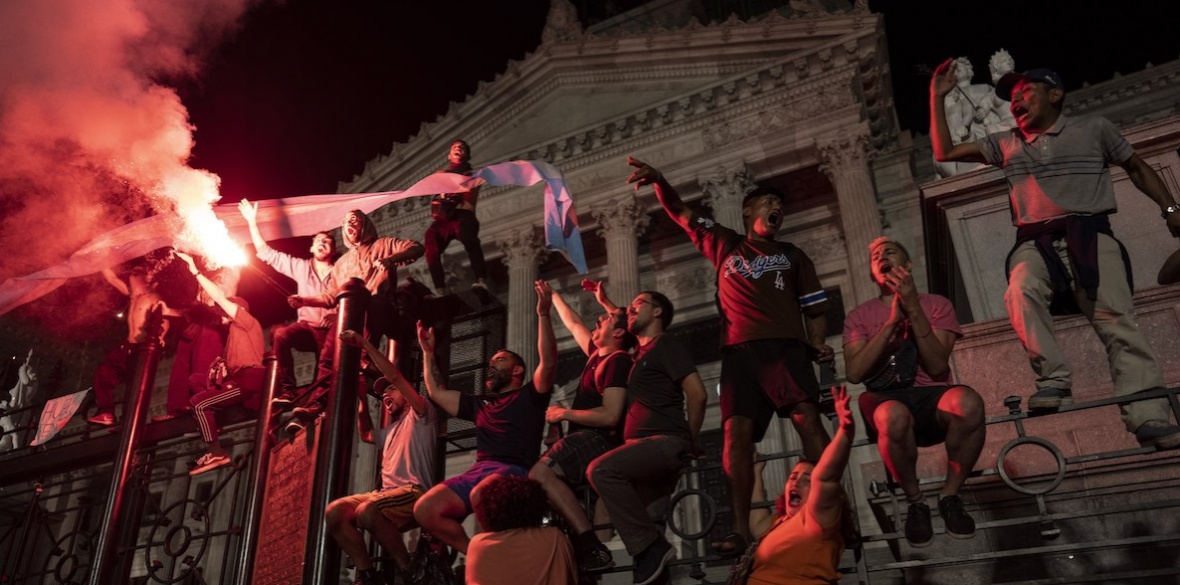This is the last article you can read this month
You can read more article this month
You can read more articles this month
Sorry your limit is up for this month
Reset on:
Please help support the Morning Star by subscribing here
THOUSANDS of protesters hit the streets of Buenos Aires on Wednesday night as Argentina’s new far-right president announced sweeping measures to deregulate the economy and privatise a swathe of state-run industries.
In a televised address, Javier Milei said: “The goal is to start on the road to rebuilding our country, return freedom and autonomy to individuals and start to transform the enormous amount of regulations that have blocked, stalled and stopped economic growth…”
The roughly 300 changes would earmark many government companies for privatisation and weaken protections for workers, renters and consumers.
They include a 50 per cent devaluation of the Argentine peso, cuts to energy and transport subsidies and the abolition of some government ministries.
The measures come amid sky-high inflation of around 140 per cent and rising poverty across the country.
After the announcement, people in some districts of Buenos Aires banged cooking pots to show their disapproval.
Mr Milei’s administration had said it would allow protests but threatened to cut off public aid payments to anyone who blocked main roads.
Marchers were also forbidden to carry sticks, cover their faces or bring children to the protest.
Marchers set out for the city’s Plaza de Mayo, the scene of protests since the days of dictatorship in the 1970s.
Police struggled to keep demonstrators from taking over the entire boulevard. In the end, many kept to the pavements and filled about half the plaza.
Eduardo Belliboni, one of the march organisers, said demonstrators faced “an enormous repressive apparatus.”
Mr Belliboni's left-wing Workers Pole group has a long history of organised street blockades.
Towards the end of the demonstration, organisers called on the country's trade unions to declare a general strike.
Security Minister Patricia Bullrich announced a new public order “protocol” that allows federal forces to clear people blocking streets without judicial approval and authorises the police to identify, through video or digital means, people protesting and obstructing public thoroughfares.
It can bill them for the cost of mobilising security forces.
Argentinian labour, social and human rights groups signed a petition on Tuesday asking the United Nations and the Inter-American Commission on Human Rights to intervene, arguing that the security protocol is “incompatible with the rights to free assembly and association, freedom of expression and social protest” enshrined in the country’s constitution.











